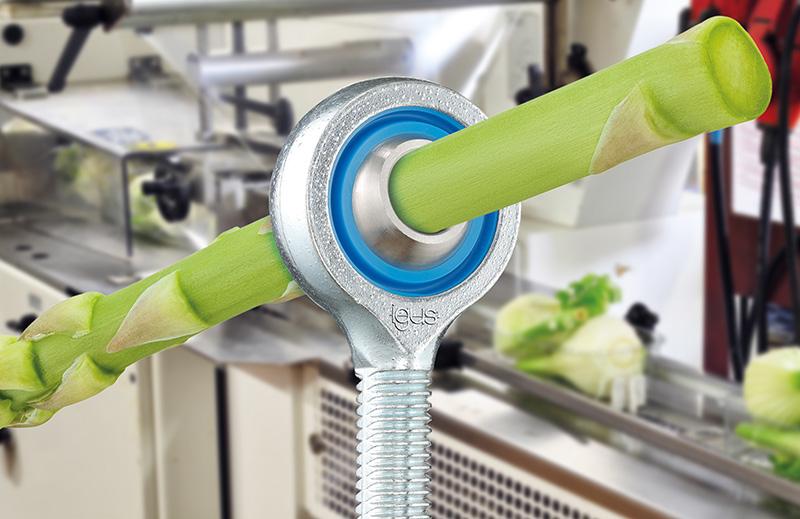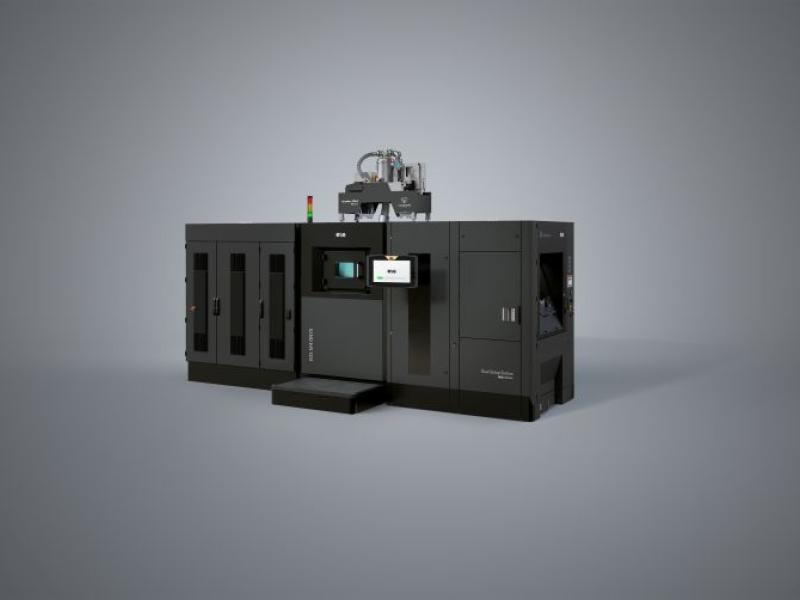igubal stainless-steel rod end bearings with iglidur A160 from Treotham enable lubrication-free dry operation without risk of contamination
Constant relubrication of metallic bearing points in the food industry costs time, money and increases the risk of contamination. Maintenance-free igus igubal spherical bearings from Treotham are an economical and safe alternative. Now, the motion plastics specialist is introducing a new model for higher loads. It is equipped with a stainless-steel housing, a self-lubricating polymer inner ring and a stainless-steel spherical ball. This allows for higher-load applications to be converted to future-proof tribo-technology.
Rod ends are an indispensable part of machine and plant engineering for the food industry. They are used everywhere from filling plants to meat-processing machines and packaging systems, where they transmit dynamic forces to pivoting, tilting and rotating movements. In the process, the heads must be relubricated to guarantee low-friction movement between the slide ring and the spherical ball. A job that is not only time-consuming, but also increases the risk of contamination as dirt and dust easily form sticky coatings and solid lumps. "To ease the burden on food-processing plants while improving hygiene in their moving applications, we have expanded our range of igubal rod end bearings", explains igus Product Manager Thomas Preißner. "The new plastic-metal hybrid consists of a steel housing and spherical ball, and an inner ring made of the high-performance plastic iglidur A160, which meets the requirements of both the FDA and EU 10/2011."
Hygienic dry operation thanks to microscopic solid lubricants
As with all iglidur plastics, there is a solid lubricant in iglidur A160, which is released in microscopic amounts over time. It ensures a low-friction dry operation between the inner ring and the stainless-steel spherical ball. The absence of lubrication also significantly speeds up cleaning the rod ends. Without grease, dirt and dust have little chance of settling. To further increase food safety, the high-performance plastic iglidur A160 is designed in blue. This is a colour on which food residues and mould spores can be quickly detected during cleaning inspections. Moreover, the colour is optically detectable. "This high level of hygiene is also confirmed by the approval of the U.S. Food and Drug Administration (FDA), which follows one of the strictest hygiene guidelines in the world", says Preißner. "So does conformity with the EU 10/2011 guideline."
Not only clean, but also robust
However, the new igubal products are not only hygienic, but also robust, even in outdoor applications. They have a higher breaking strength and rigidity compared to a plastic rod end. In addition, they are resistant to moisture, acids, alkalines and UV rays and are suitable for temperatures between -40°C and +90°C. The abrasion resistance of iglidur A160 is also ten times better than that of polyamide according to results in the igus test laboratory - even with fast rotational movements of the mounted shaft. Thomas Preißner: "Users can therefore significantly increase the reliability of their systems with a modest investment." The new rod ends are available in sizes M6, M8, M10, M12, M16 and M20.
Contact:
Treotham Automation
0800 847 200






